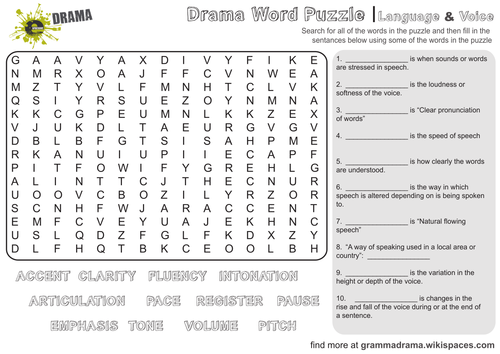 |
| https://keepcalms.com/p/keep-calm-and-love-drama-4/ |
Theatre timeline
https://www.knowitall.org/document/history-theater-intro-kids-work
https://www.bbc.co.uk/bitesize/guides/zsf8wmn/revision/1
using the space: https://www.bbc.co.uk/bitesize/guides/z26bjxs/revision/1
Greek Theatre
https://kids.kiddle.co/Theatre_of_ancient_Greece
https://www.knowitall.org/document/ancient-theater-600-bc-410-ad-kids-work
https://vimeo.com/164710800
Commedia dell'arte
https://calperformances.org/learn/k-12/pdf/2005/Study_Guide_Commedia.pdf
https://www.thoughtco.com/what-you-need-to-know-about-commedia-dellarte-4040385
https://academickids.com/encyclopedia/index.php/Commedia_dell%27arte
https://wiki.kidzsearch.com/wiki/Commedia_dell%27arte
Shakespeare
https://www.folger.edu/10-ways-be-shakespeare-expert
https://www.ducksters.com/biography/authors/william_shakespeare.php
https://www.theschoolrun.com/homework-help/william-shakespeare
Realism/Stanislavski
https://academickids.com/encyclopedia/index.php/Konstantin_Stanislavski
https://www.dramaclasses.biz/the-stanislavski-system
https://thedramateacher.com/realism-and-naturalism-theatre-conventions/
https://tophollywoodactingcoach.com/2016/06/what-is-method-acting/

Criterion A Knowing and Understanding - Theatre throughout the ages
- You will work in a group (3 groups of 4 people, 1 group of 5)
- Each group member will be assigned to a group
- 1 - Greek Theatre (comedy, tragedy, satire): Pia, Tareq, Nikolai, Alice
- 2 - Shakespeare: Isabel, Carlota, Julia, Alex
- 3 - Commedia dell'Arte: Fazia, Vincent, Sofia, Aura, Francisco
- 4 - Realism: Alec, Romane, Soliman, Tiago
- Each group will research a different style
- History of the theatre style (include dates, facts, details, vocabulary, and important people associated with that theatre style. Add any interesting information that you find in your research.)
- How has this theatre style influenced us nowadays?
The student:
strand i demonstrate awareness of the art form studies, including the use of appropriate language
1-2 demonstrates limited awareness of the art form studies, including limited use of appropriate language
3-4 demonstrates adequate awareness of the art form studies, including adequate use of appropriate language
5-6 demonstrates substantial awareness of the art form studies, including substantial use of appropriate language
7-8 demonstrates excellent awareness of the art form studies, including excellent use of appropriate language
strand ii demonstrate awareness of the relationship between the art form and its context
1-2 demonstrates limited awareness of the relationship between the art form and its content
3-4 demonstrates adequate awareness of the relationship between the art form and its content
5-6 demonstrates substantial awareness of the relationship between the art form and its content
7-8 demonstrates excellent awareness of the relationship between the art form and its content
January 9
Name: Character Shape Purpose: helps the student realize that the way we move our body helps to shape the character that we are playing
PS: This is a Commedia dell'Arte warm-up

